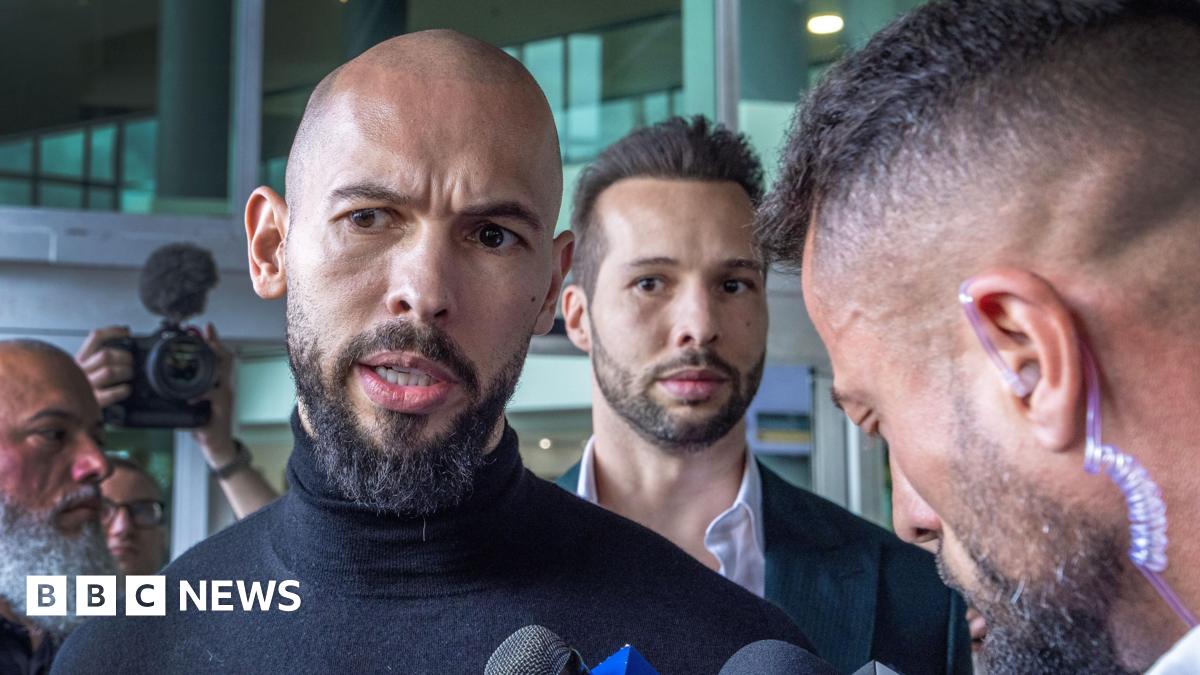Tate High Court Case: A Legal Landmark? Exploring the Implications of the Andrew Tate Trial
The Andrew Tate case, currently unfolding in a Romanian High Court, is attracting global attention, not just for its high-profile defendant but for its potential to set legal precedents concerning online misogyny, human trafficking, and the complexities of digital evidence. While the trial is ongoing, its implications are already sparking significant debate among legal experts and the public alike. This article delves into the key aspects of the case and its potential impact on future legal battles.
The Charges Against Andrew Tate and His Brother
Andrew Tate and his brother, Tristan Tate, face charges of rape, human trafficking, and forming an organised crime group to sexually exploit women. The prosecution alleges a sophisticated operation involving coercion, intimidation, and the exploitation of victims for financial gain. The specifics of the allegations are disturbing and highlight the insidious nature of modern forms of human trafficking.
- Complex Web of Evidence: The prosecution's case relies heavily on digital evidence, including online communications, social media posts, and financial transactions. This presents a unique challenge to the legal system, forcing courts to navigate the complexities of interpreting digital data within a legal framework.
- The Role of Social Media: Tate's significant online presence, characterized by controversial views and a large following, has played a key role in the case. His public persona and online content are being examined for evidence of his alleged crimes and to understand his alleged manipulation tactics.
- International Jurisdiction: The case highlights the challenges of prosecuting international crimes involving individuals operating across borders and utilizing digital platforms to facilitate their activities. The Romanian authorities' investigation and subsequent prosecution underscore the increasing need for international cooperation in combating transnational crime.
Potential Legal Precedents and Implications
The outcome of the Tate case could have far-reaching consequences, potentially influencing future legal approaches to:
- Online Misogyny and Hate Speech: The trial could set a precedent for how courts address online misogyny and its connection to real-world violence against women. The case may lead to stricter regulations and increased scrutiny of online platforms' role in facilitating harmful content.
- Digital Evidence in Criminal Trials: The extensive use of digital evidence in this case is pushing the boundaries of digital forensics and legal interpretation. The trial's outcome could shape how digital evidence is gathered, presented, and weighed in future cases.
- Human Trafficking Prosecutions: The alleged sophisticated nature of the operation could shed light on modern trafficking techniques and lead to improved methods of investigation and prosecution. This could prove crucial in tackling the evolving landscape of human trafficking.
The Ongoing Trial and Public Reaction
The trial is expected to be lengthy and complex. Public reaction to the case has been intense, with significant polarization of opinions. While many see the case as a crucial step in holding powerful individuals accountable for their actions, others raise concerns about due process and the fairness of the proceedings. The ongoing media coverage reflects this division, further highlighting the societal implications of the trial.
Conclusion: A Landmark Case?
Whether or not the Tate High Court case ultimately establishes a new legal landmark remains to be seen. However, the case's significance is undeniable. Its impact extends beyond the immediate proceedings, potentially shaping legal interpretations, influencing public discourse, and prompting crucial conversations about online safety, gender equality, and the evolving challenges of prosecuting transnational crime in the digital age. The ongoing trial will undoubtedly continue to generate intense interest and debate. It’s a case that demands careful observation and critical analysis.
Further Reading: (Link to relevant news articles and legal analysis) (Insert links to reputable news sources and legal analysis here)
Disclaimer: This article provides commentary and analysis based on publicly available information. It does not constitute legal advice. The opinions expressed are those of the author and do not necessarily reflect the views of any legal authority.

